Innovety has partnered with leading NGOs, associations, and development organizations across Egypt, Jordan, Lebanon, Tunisia, Palestine, and Saudi Arabia to help them build financially sustainable business models and align their services with evolving market and community needs. Our projects have supported diverse non-profits such as VTEC, CARE, WEN, GBC, SEDA, Wataneya, EFE, and CIT, enabling them to diversify revenue streams, monetize intellectual assets, and secure strategic partnerships. We have also advised UNICEF and national ministries on transforming youth centers into inclusive community hubs and worked with regional programs like Bridge Up to strengthen Startup Support Organizations (SSOs) across four countries.
Our beneficiaries include women’s networks, youth organizations, social protection CSOs, and national councils driving systemic change. Through organizational assessments, business model redesign, IP monetization, and sustainability roadmaps, Innovety has enabled non-profits to reduce reliance on donor funding, unlock new sources of income, and strengthen long-term impact.
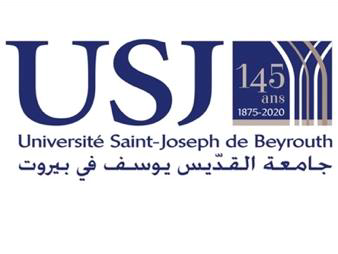
Facing economic challenges and significant brain drain, USJ aimed to reinforce its entrepreneurial ecosystem through its Competencies and Entrepreneurship Center (EC²). The project targeted three satellite offices to boost their capacity in supporting students and alumni to launch and grow businesses, foster innovation, and contribute to local economic resilience.
Conducted an in-depth assessment of each satellite office’s business environment, services, and partnership needs. Developed recommendations for new business directions, expanded service models, and strategic partnerships, validated through a stakeholder workshop to ensure alignment with USJ’s long-term vision and sustainability objectives.
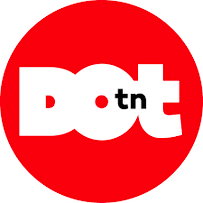
The Dot, with support from the EU’s “Bridge Up” project, aims to strengthen the digital innovation ecosystem in Tunisia and the region. The initiative focuses on building the capacity of four Startup Support Organizations (SSOs) in Tunisia, Jordan, Lebanon, and Palestine. This consultancy assessed their current capabilities and developed tailored roadmaps to scale and improve their services.
Innovety applied its Organizational Assessment Framework to evaluate the SSOs’ internal capacity—covering target market, services, business model, resources, and delivery channels. This was supported by primary research (interviews, focus groups) and secondary research. Insights were used to create a global best practices guide and inform tailored implementation roadmaps.
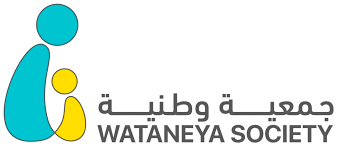
Build financial sustainability for Wataneya by scaling their programs and increasing revenues from existing intellectual property by Wataneya in accordance with its long-term vision of “A house of expertise in alternative care for children and youth.” Support their scaling to new schools and larger segments of beneficiaries while developing and maintaining sustainable financial operations.
Innovety assessed Wataneya’s intellectual assets to understand their current value and utilization within the organization. The team explored monetization and scaling opportunities across Wataneya’s programs and services to enhance their reach and impact. Based on these findings, Innovety delivered a prioritized roadmap that outlined actionable steps for strengthening the organization’s long‑term sustainability.

Wataneya Society sought to digitize its institutional development services and position itself as a regional leader in alternative care by launching an e-learning platform. The goal was to upskill caregivers, orphanage staff, and foster care professionals across Egypt and the MENA region while ensuring sustainability and outreach amid COVID-19-driven shifts toward distance learning.
Conducted a comprehensive status quo and market analysis covering platform features, content models, business models, and digital strategies. Designed a tailored e-learning platform, developed course content for alternative care providers, and proposed monetization strategies. A full marketing and communications plan was created to drive outreach and user adoption.

To harness Egypt’s youth potential, MoYS and UNICEF aimed to transform youth centers into inclusive community hubs. The project focused on empowering youth, fostering engagement, and enabling socio-economic development. Innovety was engaged to develop a sustainable business model, an operational guide, and a plan to scale to 1,000 centers by 2027.
Innovety assessed ecosystem gaps through market research and beneficiary engagement. It developed and validated both universal and tailored business models. Manuals were tested in five pilot centers. A final model and national scaling roadmap were delivered.

The Chamber of Information Technology (CIT) sought to redefine its role in Egypt’s ICT sector by building a sustainable business model, enhancing services for MSMEs, and strengthening its position as a national innovation hub. The program targeted financial stability, increased member value, and stronger organizational capabilities for long-term growth.
Delivered a two-phase transformation program, starting with structural assessment, global/local benchmarking, and sector needs mapping to design a business model roadmap. Translated strategy into action with prioritized recommendations, financial projections, and an HR plan to ensure CIT’s capacity to execute its vision.
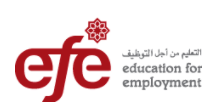
Education for Employment (EFE) sought to scale and sustain its youth programs by monetizing its intellectual assets. The project focused on leveraging assets like teaching methods and trademarks through strategies such as licensing and expansion.
Assessed intellectual assets through a comprehensive mapping and IP due diligence process. We developed an IP strategy to enhance value creation, introducing policies, contractual frameworks, and technological tools to protect key assets. Finally, we recommended IP-based revenue models and innovative packaging approaches to maximize value capture and support EFE’s long-term sustainability.
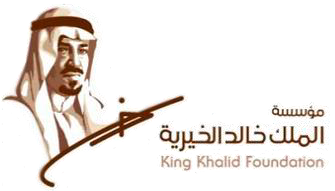
King Khalid Foundation (KKF), sought to strengthen NGOs and civil society organizations and organize a capacity-building event in Saudi Arabia. The program aimed to enhance innovation in service and program design while improving financial sustainability. Participants learned how to apply diverse business models to reduce reliance on grants and traditional fundraising.
Developed tailored content and materials for the capacity-building program, aligning with participant needs and objectives. Delivered training sessions to equip organizations with practical tools and knowledge, complemented by one-on-one coaching to refine and implement opportunities. Compiled best practices and actionable insights into a guide to ensure sustained impact beyond the program.

Enhanced the financial sustainability of CSOs under the Expertise France-funded social protection program. Piloted with JCEE to assess intellectual assets and develop innovative revenue models. Developed a guidebook and delivered TOT sessions to scale across KHF’s network. Focused on fostering entrepreneurship and sustainable education services.
Innovety assessed JCEE’s intellectual capital, developed revenue-generating models, produced a practical guidebook, and delivered a training-of-trainers (TOT) workshop to scale the methodology across KHF’s broader CSO network.
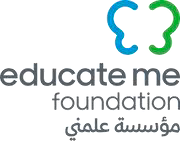
Innovety partnered with Educate Me (EM) to develop a financial sustainability plan aligned with EM’s mission of delivering quality education to every child in Egypt. The project focused on scaling existing programs, unlocking value from EM’s intellectual property, and identifying new revenue streams to reduce reliance on traditional funding.
Innovety assessed EM’s structural, relational, and human intellectual assets to understand its core capabilities and value drivers. Innovety explored monetization and scaling opportunities across services, programs, and processes. Using opportunity generation tools, we identified viable revenue models aligned with EM’s mission and beneficiaries.
• Reduced EM’s dependency on donor funding by developing a strategic roadmap with actionable, revenue-generating models.
• Unlocked new income streams through the design of service offerings and curriculum-based programs aligned with EM’s educational mission.
• Positioned EM as a partner of choice for CSR actors and international donors, enabling sustainable growth and scalable digital education innovation.
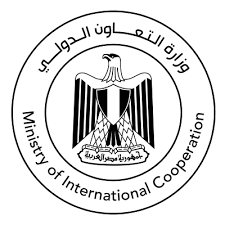
Commissioned by Egypt’s Ministry of International Cooperation, this project aimed to build the capacity of local NGOs in Matrouh Governorate to support mine victims and ensure their reintegration. It also sought to establish sustainable, victim-led NGOs capable of operating beyond the project’s closure.
Innovety conducted comparative capacity assessments for existing and potential NGOs, including women‑led organizations, to identify gaps. Tailored training modules were developed on strategic planning, leadership, financial management, gender‑responsive development, and micro‑lending. Consulting support guided NGOs in creating sustainability mechanisms, forming partnerships, and establishing service committees to enhance long‑term impact.

CARE aimed to expand and diversify its funding by forging long-term partnerships with businesses whose corporate social responsibility (CSR) goals align with CARE’s mission, supporting sustainable community development while increasing private-sector engagement.
Innovety conducted targeted market research to identify businesses with CSR priorities aligned with the project’s mission. We designed tailored outreach plans and developed customized communication tools to effectively engage these potential partners. Additionally, we created bespoke partnership proposals and led relationship-building efforts, fostering strategic collaborations to advance shared objectives.

The Egypt Green Building Council (GBC) aimed to strengthen its long-term sustainability and better serve the local green building sector by revamping its business model. The project focused on aligning services with market needs and adopting global best practices tailored to Egypt’s context.
Innovety conducted a comprehensive assessment of GBC’s operations, partnerships, and revenue streams. Through global benchmarking of leading Green Building Councils and an in-depth analysis of the external factors shaping the market, we identified opportunities to address local sustainability challenges. A refined business model was developed, focusing on improved services, partnerships, and revenue strategies for long‑term viability.

The Women Entrepreneurs Network (WEN) by DAI aimed to enhance its financial sustainability and reinforce its advocacy for gender inclusion by exploring innovative revenue streams and building a strategic, future-ready business model.
Innovety assessed WEN’s existing model, market position, and assets to identify opportunities for sustainable growth. Building on these insights, a tailored two-day workshop was delivered, focusing on sustainable nonprofit revenue strategies. Finally, Innovety provided a comprehensive sustainability roadmap, along with support materials and KPIs, to guide WEN in implementing long-term financial sustainability initiatives.

With USAID support, the Vocational Training and Employment Center (VTEC) sought to develop a financially sustainable business model. The goal was to align its vocational training programs with labor market needs, enhance scalability, and build partnerships with private sector, government, and development organizations to maximize long‑term impact.
Innovety conducted comprehensive market research, assessing labor market needs, competitive positioning, and global best practices. A financially sustainable business model was developed, incorporating optimized service offerings, pricing strategies, and revenue streams. Strategic partnerships with donors, governmental bodies, and private sector actors were identified to support VTEC’s growth and sustainability.

UNDP engaged Innovety to strengthen A‑Venture, an Algerian accelerator, by identifying gaps in its operations and enhancing its capacity to support startups. The project aimed to conduct a full needs assessment, develop and deliver tailored training on business planning and monitoring & evaluation, and build A‑Venture’s ability to better guide entrepreneurs.
Conducted primary and secondary research to assess A‑Venture’s operational and programmatic gaps, then designed a customized training plan addressing these needs. Innovety developed practical training materials using the Mission Model Canvas and M&E techniques, delivered hands‑on sessions to staff and startups, and measured learning outcomes through pre‑ and post‑training assessments.